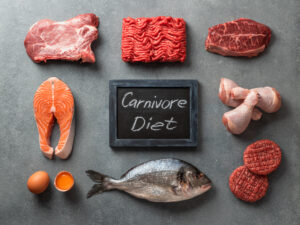A Comprehensive Guide to Meal Plans for Muscle, Health, and Weight Management is no walk in the park.
Navigating through countless meal plans can feel like a never-ending maze.
You want to build muscle, maintain health and manage weight. But how?
The answer lies within A Comprehensive Guide to Meal Plans for Muscle, Health, and Weight Management.
This isn’t just about counting calories or hitting the gym relentlessly.
Nope! Uncovering what your body requires on a deeper level is the key to staying in top shape.
Finding out what fuels you best and keeps you fighting fit – that’s where true power resides!
Table of Contents:
- Understanding Basic Nutritional Principles
- The Science Behind Weight Loss and Muscle Gain
- Meal Plans for Muscle Gain
- Meal Plans for Muscle Gain
- Post-Dieting Weight Maintenance Strategies
- Exploring Different Meal Plans
- Dietary Supplements – Boosters or Just Hype?
- The Role of Hydration in Your Fitness Journey
- Overcoming Dietary Challenges on the Fitness Journey
- FAQs in Relation to a Comprehensive Guide to Meal Plans for Muscle, Health, and Weight Management
- Conclusion
- A Comprehensive Guide to mealPlans for Muscle & Health
Understanding Basic Nutritional Principles
Nutrition isn’t rocket science, but it’s a field filled with complexities. Macronutrients – proteins, carbohydrates and fats – are the main components of nutrition. These nutrients hold significant sway over our health and well-being.
Macronutrients fuel us up for the day-to-day grind by providing calories – four each from protein or carbohydrate and nine from fat1. Grasping these numbers can be instrumental when you’re trying to nail down your daily caloric target.
The Role of Macronutrients in Weight Management
If you want to keep your weight under control, understanding how macronutrients affect body composition is vital2. Proteins aren’t just essential for muscle repair; they also help stave off hunger pangs longer than other macros do.
Fats have earned an undeserved bad reputation due to their high-calorie content per gram compared with carbs or proteins. However, certain types like monounsaturated and polyunsaturated fats actually contribute positively towards heart health.3.
We all know that carbs power our workouts, but what many people don’t realize is that excessive carb intake without enough physical activity leads straight into weight gain territory because unused carbs get stored as fat4.
Muscle Mass: A Metabolism Booster
Apart from making everyday tasks easier or improving athletic performance, having more lean muscle mass helps burn more calories even at rest. This process known as resting metabolic rate (RMR) means those aiming at maintaining or losing weight would benefit greatly by increasing both their muscle mass through resistance training along with adequate protein intake5.
Dangers
Unravel the complexities of nutrition with macronutrients. Remember, proteins curb hunger, good fats boost heart health & carbs fuel workouts. Plus, more muscle mass = higher calorie burn at rest. #MasteringNutrition #HealthyLivingClick to Tweet
The Science Behind Weight Loss and Muscle Gain
Let’s face it, guys. Dropping pounds isn’t a matter of slashing calories to the extreme. In fact, registered dietitian Paul Salter explains, going too hard on caloric restriction can backfire big time.
This means you’re burning fewer calories even when resting – not exactly what we want for our long-term physique transformation journey.
The Role of Macronutrients in Muscle Growth
If you’re looking to bulk up instead of slimming down though, that’s where macronutrients come in: proteins, fats, and carbohydrates are all key players here.[1]
Protein: This is crucial because it provides the amino acids needed by our bodies to repair damaged tissues and build new ones – including muscles. According to Susan Hewlings, a registered dietitian, consuming enough protein throughout the day helps promote optimal muscle synthesis, especially when combined with resistance training(source).
Fats: These provide energy reserves during intense workouts, while carbs replenish glycogen stores post-workout, aiding the recovery process.
Meal Plans for Muscle Gain
Muscle growth doesn’t just happen overnight; it requires strategic planning and careful execution from a workout regimen to daily calorie intake. Using tools like Bodybuilding.com’s free macronutrient calculator can provide personalized recommendations based on individual goals, whether it’s bulking or leaning down[6]. Let me explain further…
Utilizing BodyBuilding.Com’s Free Macronutrient Calculator
You plug in basic information such as age, height, current weight, activity level, and goal (weight loss, maintenance, or gain), and then this online tool generates a science-backed calorie recommendation along with breakdowns of macros, so you know exactly what foods you should be eating at every mealtime[7].
Want to transform your physique? It’s not just about cutting calories. Balance proteins, fats, and carbs for muscle growth. Use Bodybuilding.com’s free macronutrient calculator for personalized diet plans. #FitnessGoals #NutritionTipsClick to Tweet
Meal Plans for Muscle Gain
Mastering nutrition is a critical aspect of muscle growth. The correct balance of macronutrients not only fuels your workouts but also aids in recovery, thereby promoting lean muscle mass.
The cornerstone of building muscles is protein, which should be included in every meal. Carbohydrates provide energy for strenuous exercise, while healthy fats are essential to hormone synthesis and nutrient absorption.
Utilizing Bodybuilding.com’s Free Macronutrient Calculator
An effective tool that calculates your daily caloric target based on personal details like age, weight, height, activity level, and fitness goals can help you plan meals effectively – Bodybuilding.com’s free macronutrient calculator. It further breaks down this calorie intake into optimal amounts of proteins, carbohydrates, and fats.[1]
- To utilize it efficiently:
- Type all required information accurately.
- Select ‘muscle gain’ from the dropdown menu provided as your goal.
- Note or screenshot results: total calories needed per day along with grams of each macro (protein/carbs/fats) required.[5]
A Sample Diet Plan
An ideal diet plan combines taste preferences with nutritional needs without being overly restrictive – thus fostering adherence over time. Here’s an example: “High-Protein Diet”.
Maximize muscle growth with the right balance of macros. Protein builds, carbs fuel workouts & healthy fats aid nutrient absorption. Try Bodybuilding.com’s free macronutrient calculator for personalized meal planning. #MasteringNutrition #MuscleGainClick to Tweet
Post-Dieting Weight Maintenance Strategies
The struggle of maintaining your weight after dieting is real. You’ve hit the target, but now comes the true test: keeping those pounds off for good. The secret weapon? Lasting healthy habits that promote long-term success.
Implementing Healthier Habits
To kickstart your post-diet life, you need to embrace healthier lifestyle choices compatible with your new nutritional needs1. It sounds like a no-brainer, yet these basic behaviors are often underestimated or ignored due to their simplicity.
A consistent workout routine is crucial in fending off unwanted weight gain2. No need for marathon gym sessions every day; even simple activities such as walking or cycling can significantly impact over time.
Eating balanced meals plays an equally vital role in preserving muscle mass and preventing fat accumulation3.
In order to keep tabs on what’s going into your body daily, use Bodybuilding.com’s free calorie intake calculator (Hannah Eden’s 30-day fitness plan), making sure you’re hitting but not exceeding your daily caloric target based on current body composition goals. Also consider implementing high-intensity interval training 2-3 days per week as part of a comprehensive fat-loss focused workout program.
Mindful eating practices have been shown effective at helping individuals eat more slowly, recognize when they’re full before overeating occurs, resulting in better control over portion sizes, food cravings, and overall caloric intake, slightly not excessive4.
Last, hydration. Drink plenty of water daily to support digestion, general health, and help manage hunger pangs between meals. It aids digestion, supports general health, and helps manage hunger pangs between meals. Remember, slow and steady changes yield lasting results
Struggling to maintain weight post-diet? Embrace healthier habits, balanced meals & consistent workouts. Try Bodybuilding.com’s free calorie calculator for daily targets. Hydrate well and practice mindful eating. #FitnessGoals #HealthyLivingClick to Tweet
Exploring Different Meal Plans
Meal plans are as diverse as the individuals who follow them. We’ll examine three popular diets: Carb Cycling, Clean Bulk Meal Plan, and Carnivore Diet.
The Science of Carb Cycling
Carb cycling is a method that alternates between high-carb days and low-carb days[1]. The strategy here is to enhance fat loss while preserving muscle mass by synchronizing carbohydrate intake with workout schedules. On intense training days, your body needs more carbs for energy; on rest or lighter activity days, you limit carb consumption to encourage fat burning.
This technique can be an effective tool in weight management without resorting to severe caloric restriction, also known as dieting[1]. However, it does require careful planning and tracking both macronutrient intake and physical exertion levels, which may prove challenging for some individuals[6].
Clean Bulk Meal Plan Explained
A clean bulk meal plan revolves around consuming nutrient-dense foods in larger quantities than usual to support muscle growth[2]. This approach aims at gaining lean body mass without accumulating excessive amounts of body fat – essentially feeding your muscles, not your waistline.
An example day might include meals rich in protein like chicken breast or salmon along with complex carbohydrates such as brown rice or sweet potatoes [4] .
The Carnivore Diet Breakdown
Dietary Supplements – Boosters or Just Hype?
When it comes to physical fitness and nourishment, dietary supplements are frequently advertised as the key for enhanced performance, muscle gain, and fat loss. But how much of this is backed by science? Let’s dig in.
The Lowdown on Protein Powders
Protein powders can be a crucial ally when you’re working towards building lean muscle mass. They offer a convenient source of high-quality protein that complements your diet when whole food sources aren’t practical or readily available. However, they’re not magic bullets – adequate calories from other macronutrients and regular resistance training remain key components.[1]
In particular, whey protein has gained popularity due to its complete amino acid profile and rapid absorption rate[5]. Vegan options like pea or hemp proteins are also viable choices but may require combining different sources to get all necessary amino acids.
Do we need vitamins and minerals?
Micronutrient supplementation does have its place in our diets too. Certain vitamins such as Vitamin D contribute towards improved muscular strength while minerals like zinc aid optimal testosterone production, which is beneficial for those targeting caloric intake specifically for muscle building efforts.[6]
However, most people should aim at getting their vitamins and minerals through normal foods before turning to supplements since nutrients tend to work synergistically within our bodies rather than isolated compounds found in pills, according to registered dietitian Paul Salter.
Creatine Monohydrate: The Power Booster
Numerous studies have shown that creatine monohydrate helps increase power output during intense exercise sessions and could lead to greater gains over time when used consistently alongside a proper training regimen and nutrition plan.
Despite uncertainty regarding its security and long-term utilization, there is evidence suggesting it is safe for healthy individuals over a period of five years even when taken in large amounts (5g/day).
Understanding what works best at an individual level requires experimentation and careful monitoring of the body’s response to various substances. It is wise to practice caution when experimenting with various substances.
Key Takeaway:
Supplements can be beneficial for muscle growth and overall health, but they’re not a magic solution. Protein powders are great when whole foods aren’t available, while vitamins and minerals should ideally come from food sources. Creatine monohydrate has proven benefits for power output during workouts, but individual responses may vary.
The Role of Hydration in Your Fitness Journey
Hydration isn’t just about slaking your thirst; it’s a key factor in any fitness program, impacting muscle performance and energy levels during strenuous workouts. It plays a crucial role in your fitness journey, influencing muscle function and energy levels during high-intensity interval training sessions.
Your blood is primarily water-based and is responsible for transporting nutrients to your muscles. If you don’t stay properly hydrated, it can compromise this nutrient delivery system, leading to fatigue and reduced performance1.
Adequate fluid intake also helps regulate your body temperature2. When you engage in intense workouts or follow a tailored plan session at Bodybuilding.com, sweating can cause significant fluid loss. If you don’t replace these fluids promptly, it can lead to overheating and decreased workout efficiency.
Determining Your Daily Water Intake Needs
Understanding how much water you need daily is essential for optimal health benefits. However, there’s no one-size-fits-all answer as individual needs vary based on factors like age and gender[3]SUP>.
You’ve probably heard of the “8×8 rule,” which recommends drinking eight 8-ounce glasses (about 2 liters) of water per day. However, keep in mind that strenuous physical activities causing substantial perspiration may require more than this baseline amount[4].
Incorporating Hydrating Foods into Your Diet Plan
Hydrating your body goes beyond just drinking plain old H2O. There are other sources, such as hydrating foods, that can contribute to meeting your daily fluid requirements.
Fruits like cucumbers (96% liquid), strawberries (92%), and melons (90%) are great selections for hydrating, as they offer moisture in addition to other nutritional benefits.
Dive into your fitness journey with proper hydration. It’s not just about quenching thirst, it fuels muscle function and energy levels. Remember to adjust your water intake based on activity level. #FitnessTips #HydrationIsKeyClick to Tweet
Overcoming Dietary Challenges on the Fitness Journey
Navigating through dietary challenges is an inevitable part of any fitness journey. From understanding your daily caloric target to making healthier food choices, these hurdles can be overwhelming. But with a well-informed approach and effective strategies, you can conquer them.
Fitness Coach Sohee Lee’s Insights into Tackling Dietary Hurdles
Maintaining consistency in healthy eating amidst social pressures or emotional triggers often poses a significant challenge. It becomes easy to deviate from your diet plan when confronted with enticing foods at gatherings or during stress periods.
To counter this issue, planning ahead for such situations is recommended – it could mean packing your own meals or opting for healthier alternatives available at events.
The Calorie Counting Conundrum
A vital aspect of weight management involves accurately tracking calorie intake, which presents its own set of difficulties. Although tools like Bodybuilding.com’s free macronutrient calculator assist in determining accurate daily calorie intake based on individual needs, factors like portion sizes and cooking methods complicate counting calories.[5]
In response to this problem, investing time in learning about nutrition labels and familiarizing yourself with different types of food portions using measuring cups or digital kitchen scales proves beneficial[4].
Battling Plateaus: The Silent Progress Dampeners
Hitting plateaus – phases where progress seems stagnant despite consistent efforts – pose another frequent obstacle many encounter during their long-term physique transformation journey [6]. Herein lies the importance not just of patience but also of periodically revisiting one’s strategy to identify areas requiring adjustments – perhaps tweaking workout routines slightly[7]. Remember that progress doesn’t always move in a straight line; it can have highs and lows, but staying committed will eventually bring results.
Dismantling Misconceptions Around “Bad Foods”
Certain “bad” foods supposedly detrimental to health have been vilified unjustly, leading to misconceptions around them being harmful towards weight loss
Key Takeaway:
Overcoming dietary hurdles on your fitness journey involves understanding caloric targets, planning ahead for social or emotional eating situations, and learning to accurately track calorie intake. Battling plateaus requires patience and strategy adjustments while debunking misconceptions around “bad” foods is also crucial.
FAQs in Relation to a Comprehensive Guide to Meal Plans for Muscle, Health, and Weight Management
What should a woman eat to lose belly fat and gain muscle?
A balanced diet rich in lean proteins, complex carbs, healthy fats, fruits, and vegetables can help shed belly fat while promoting muscle growth.
How do I make a diet plan for weight gain and muscle?
Create a calorie surplus with nutrient-dense foods. Prioritize protein intake for muscle repair and growth. Include strength training in your routine.
What should I eat to lose fat and build muscle?
Eat high-quality proteins, fiber-rich carbohydrates, healthy fats along with regular resistance or strength training exercises to achieve this goal.
What diet is good for muscle maintenance?
A high-protein diet paired with consistent strength training helps maintain existing muscles. Also include enough carbs for energy replenishment.
A Comprehensive Guide to Meal Plans for Muscle & Health
A Comprehensive Guide to Diet Plans for Muscle, Health, and Weight Management has been a journey.
We’ve dived deep into the science of nutrition. Explored the role of macronutrients in muscle growth and weight management.
Tackled diet plans specifically designed for muscle gain. Weighed up the pros and cons of dietary supplements.
Dissected popular diets like Carb Cycling, Clean Bulk Meal Plan, Carnivore Diet, among others. Discussed the importance of hydration in fitness journeys.
And finally, addressed common dietary challenges with practical solutions to overcome them successfully.
The road to peak fitness is not easy, but armed with this comprehensive guide, you’re now one step closer to achieving your health goals!
If you want more tips on getting ahead in life – be it love, lifestyle, or grooming – consider checking out oneupman.com.
Your journey doesn’t stop here! With our wide array of topics geared towards helping guys get ahead in all aspects of life, including their nutritional needs – we promise that every
step forward will bring you closer to the healthier, fitter, and more confident you.
Remember, mastering nutrition is an ongoing process. The knowledge you’ve gained from this guide is your foundation. As you continue on your fitness journey, stay open to learning, experimenting, and adapting your approach based on your individual needs and goals.
Whether you’re aiming to build muscle, improve health, manage weight, or all of the above, the power to transform yourself lies within your choices and actions. It’s not just about following a specific diet plan; it’s about making sustainable lifestyle changes that align with your aspirations.
So, keep pushing yourself, stay consistent, and don’t forget to celebrate your successes along the way. The comprehensive guide you’ve explored here is your roadmap to a better you, and with determination and dedication, your fitness goals are well within reach.
Here’s to your journey towards a healthier, stronger, and more vibrant life!




